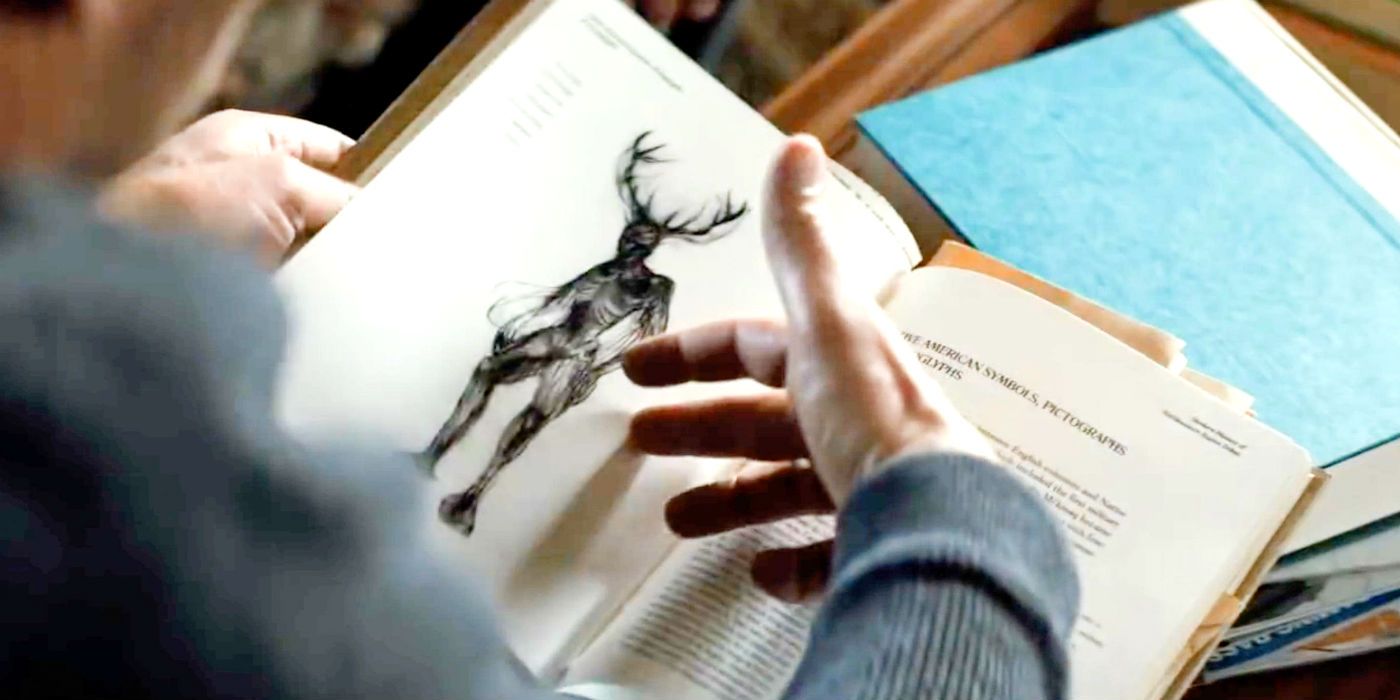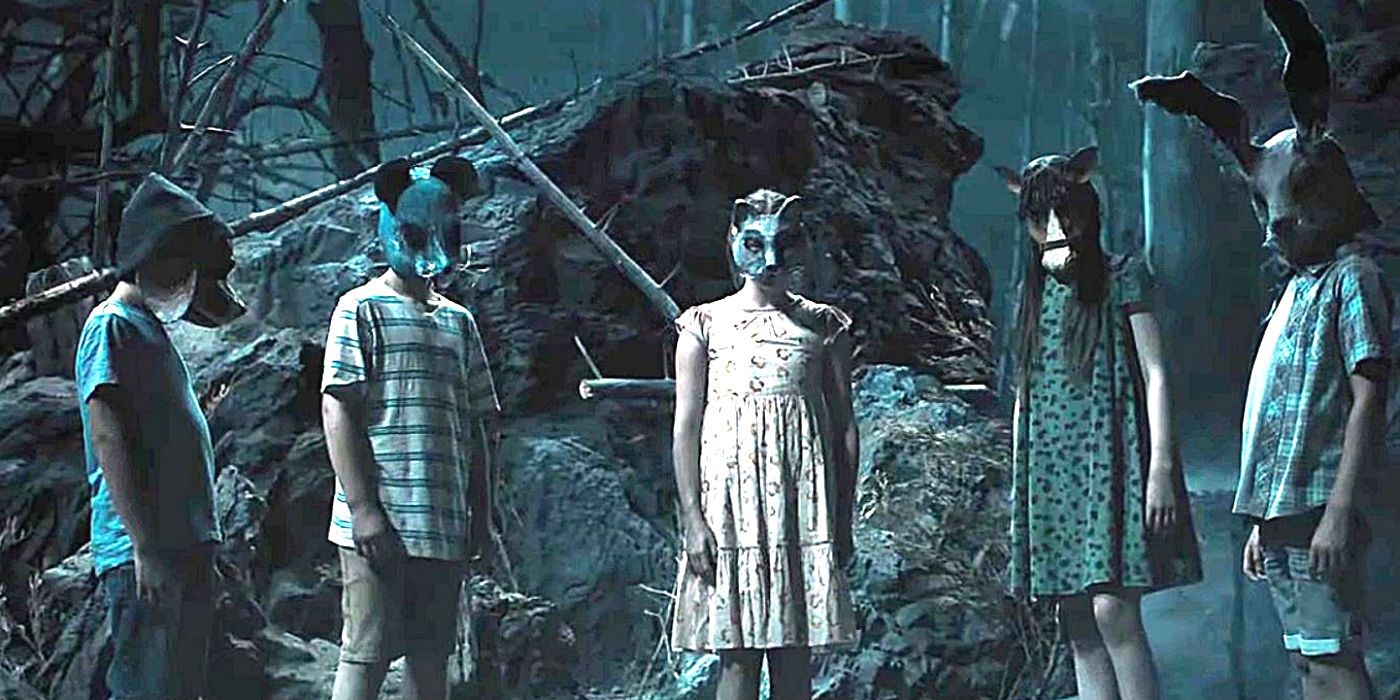While the 2019 Pet Sematary remake got harsh criticisms for some of the decisions it made, primary around the choice to swap Gage's death to his older sister, Ellie, the remake adapts some of the finer points of King's original novel in ways the 1989 version didn't; it also includes the Wendigo, which was a big part of the film's source material.
According to Jud (John Lithgow) in the movie: "they fear that place... there's something up there. Something that dates way back. Those woods belong to something else. Something... that brings things back." In King's novel, that 'something' is the Wendigo. Though it still didn't have such a major role in the 2019 adaptation as in the novel, directors Dennis Widmyer and Kevin Kölsch were eager to include it in some capacity, and seemed to consider it a point of pride in interviews.
Though Louis (and the audience) gets a glimpse of the mythological creature during a journey to Little God Swamp in the 2019 movie, the Wendigo is an intriguing creature that, in many ways, was the driving force behind King's novel and has deep roots in folklore and history.
Pet Sematary's Wendigo Lore Explained
The Wendigo's origin dates back to Native tribes in the Northeast region of the United States. In these stories, the Wendigo either is created when people choose to feast on the flesh of their fellow humans, or is present when one possesses a person to make that choice. Many tales surrounding the Wendigo's story involve cannibalism, and can sometimes act as a cautionary tale to discourage people not to succumb to an ultimate act of savagery, as if cannibalism isn't horrible enough already. In King's novel, the Wendigo is a little different, though many aspects are similar.
In Pet Sematary, the Wendigo is the puppet master feeding off the grief of those who have recently lost someone and compels them - in many facets of the creature's lore, it can typically possess people - to bury their loved ones in the sour earth of the burial grounds. Then, it provides the impetus to reanimate those who were once living after they have been buried, and leaves them evil and dark versions of their former selves, who now hunger for human flesh. This aspect of manipulation by a supernatural being in present in other King novels, such as Pennywise's influence on Derry in IT.
In the novel, past events were explored, including the story of Timmy Bateman, who was killed during World War II and shipped home; his father buried him in the Micmac cemetery. Bateman came back, told his father things he knew from beyond the grave; his father shot him, burned their house down, and then shot himself. As Jud is a native of the town, he has seen this sort of event many times before and knows the history of the Wendigo's powers, yet chooses to inform Louis of them anyway. The Wendigo's influence can manipulate people, and since Jud has been a resident of the town for so long, he could be unable to resist its pull. In Pet Sematary, the Wendigo is so powerful that it orchestrates Gage's death, and subsequently is the reason for Louis going completely mad, so its inclusion is vital to any story that wishes to do King's work true justice.


